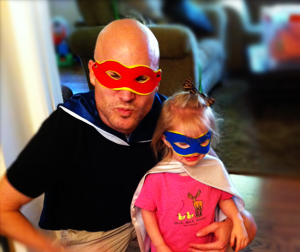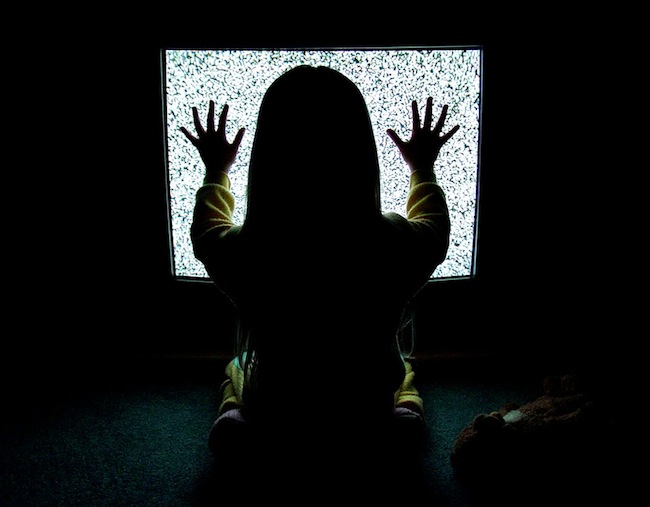
by Lance Cashion | May 8, 2014 | Culture, Encouragement, Family, Friendships, Lance's Philosophy, News, Personal Growth, Relationships, Trending Topics, Uncategorized, Wisdom
I realize that in order to read this post, you must be on a computer or smartphone. I hope that when you have finished reading it, you will put away the device and look up. Is there anyone in the room with you? What are they doing right now?
Maybe you are by yourself right now. What is your best friend doing right now? How about your mom or dad?
Watch this video (it’s 5 minutes long and won’t be a waste of you time):
I don’t usually spend long hours per day on Facebook but, I do find myself mindlessly scrolling the News Feed several times a day. Particularly at night before going to bed. How do I so easily drift into this state of feeding on the news feed? Then, the question hit me;
Is ‘feeding on Facebook’ beneficial? (more…)

by Lance Cashion | Apr 24, 2014 | Encouragement, Lance's Philosophy, News, Pain, Personal Growth, Philosophy, Trending Topics, Triathlon, Uncategorized
I wish I could have been in Boston on Monday. 36,000 people participated in the Boston Marathon. I got a sense that this was going to be a special race like no other. I would have loved to be there. But, like many of you, I caught glimpses on Social Media. There are so many touching and amazing stories emerging from event. Whether its the stories of amputees returning to race in Boston or folks running in memory of their fallen loved ones or participants carrying exhausted strangers toward the finish; we learn something about who we are. It is an encouragement to see others finishing the race.
Having personally participated in several very mentally and physically grueling endurance races, I can only imagine what it felt like to cross that line. It must have been so bitter-sweet and joy-filled words can’t describe it.
We have a choice:
When an event or loss devastates our lives, we are left with a choice. Whether it is the loss of a spouse or job, health issues, or broken dreams… We have a choice. We can linger in the bondage of that dark time or we can press on and finish the race.
Redeeming the experience
The tough and dark times are rich with value that can be redeemed. Maybe not immediately, but at some point in the future. When the participants crossed the finish line on Monday in Boston, they redeemed something of transcendent value that cannot be measured. The word ‘priceless’ seems like a cheap description of it. As onlookers, we sense it and feel it as we see and hear the stories pouring out from the race.
Pressing on: Finishing the Race
We all experience trials in life. Most we cannot escape. We must endure it. Personally, I believe that pain and suffering have a purpose and have a much higher value than pleasure. If I can encourage you to do one thing. I encourage you to press on and finish the race. There will come a time when you will be able to redeem it and bring forth more good than you ever expected. Plant those roots good and deep. When the heat and trials come, you will endure. And when the quenching rains come you will burst forth with the good fruit of life that has transcendent value. There will be folks cheering you on as you finish your race. It is yours to run. Who knows, maybe you’ll have the privilege of carrying someone else toward the finish line with you.
Encouragement from the Bible:
“Do you not know? Have you not heard?
The Lord is the everlasting God, the Creator of the ends of the earth.
He will not grow tired or weary, and his understanding no one can fathom.
He gives strength to the weary and increases the power of the weak.
Even youths grow tired and weary, and young men stumble and fall;
but those who hope in the Lord will renew their strength.
They will soar on wings like eagles;
they will run and not grow weary, they will walk and not be faint.” (Isa 40:28-31)
“And let us not grow weary of doing good, for in due season we will reap, if we do not give up.” (Gal 6:9)
Press on….

by Lance Cashion | Mar 27, 2014 | Culture, Education, Family, Lance's Philosophy, Personal Growth, Philosophy, Productivity, Relationships, Uncategorized, Wisdom |
Are you looking to get high?
Do you need an escape from the pressures of life or a quick fix? Would you like to experience a prolonged pleasurable passive state of being? How would you like the perfect combination of stimulation and sedation?
There is no need to put a needle in your arm or smoke, snort or drink. There is no need to break the law either. I’ve found the ultimate narcotic! It is cheap, effective and the supply is only limited by the amount of time you have to enjoy it.
Pleasurable effects of this drug:
1. Stimulating and sedative (simultaneously)
2. Reduces pain and tension
3. Provides a sense of control
4. Enhances a sense of relaxation and euphoria
5. Long lasting (the drug after-effects last for several hours)
6. Stress-free, quiet absorption
That sounds pretty good, right? However, I need to make you aware of the negative side-effects of this drug.
Negative side-effects of this drug:
1. Lower cognitive skills & IQ
2. Decreased attention span (possible ADD/ADHD connection)
3. Lower academic scores & lagging reading ability
4. Depression and Anxiety
5. Impeded imagination
6. Retardation social skills
7. Increased aggression & violent behavior (double of non-users).
8. Obesity & Sleep disturbances
Narcotic Effect:
I recently watched an interview with a Hollywood screenwriter who described the main objective of video media is to provide a ‘narcotic effect’ for the viewer. The point of which is to lull the viewer into a state of sedation and stimulation.
“(In 1993) Psychologists and epidemiologists at the University of Tennessee and Memphis State University monitored metabolic rates in eight- to twelve-year-old children under two conditions: lying down in a dark room, and sitting up watching television. In every case, the child’s metabolic rate while sitting and watching television was far lower than his metabolic rate while lying down in the dark. Watching television is worse than doing nothing.”(1).
There are literally thousands of studies conducted over the last 60 years that prove without a doubt that both television (video) content and the medium itself are extremely damaging and addictive. Most positive benefits of content are cancelled out by the medium of TV (video) itself. It is an addictive drug and has the same effects as chemical drugs.
“Television, while chemically non-invasive, nevertheless is every bit as addicting and physiologically damaging as any other drug.” (Rivers)
Maybe its time to have a real discussion around the dinner table in America about this problem. If the average American watches 5-6 hours of TV per day, what life experience he or she trading for that 5-6 hours? This is a cultural and relational issue we must tackle.
“In 1993, the most violent prime-time shows exhibited as many as 60 acts of violence per hour.(23) That year the average child living in the United States watched 10,000 murders, assaults, and other violent acts on television,(24) and by 1997 that number had climbed to 12,000(25) and was still rising.”(2)
Based on mountains of research, there is no question that watching TV (video) is an addictive and dangerous drug. The question is, what are WE going to do about it?
See footnotes and resources here… Do your own homework on this. You will be shocked and convicted. To be continued….

by Lance Cashion | Mar 11, 2014 | Communication, Culture, Jesus Christ, Lance's Philosophy, News, Personal Growth, Relationships, Trending Topics, Uncategorized, Wisdom

Warren Buffett’s Car
(This is a free-flow exploration born from the above statement)
Prejudice is a preconceived opinion or prejudgment that is NOT based on reason or actual experience. It is an unfavorable opinion formed without knowledge, thought or reason (wikipedia & dictionary.com)
Most of us think of prejudice in terms of race, ethnicity, gender, etc. It has become an emotionally charged word in our culture. Therefore, I’ll use the word ‘prejudgement’ for the sake of this discussion because this is the case for ALL people we interact with.
We must constantly be on our guard against prejudging people. If we’re honest, we understand that we prejudge people before we actually know them all the time. It is almost impossible to keep from doing this. With every introduction or handshake, I am making prejudgements. You are too.
The problem as I see it, is we’re making internal statements about the individual instead of asking internal questions. In my mind, I am making presumptions about this person which amount to snap character judgements. Instead, I should be asking asking myself character questions.
Why is any of this important?
If I prejudge someone before I actually know anything about them, my perception of them will be distorted. This distortion will taint the relationship. This causes miscommunication, missed opportunities and prevents meaningful growth. Basically, the relationship is DOA (Dead on Arrival). It is dangerous to base our thinking about someone on a non-reality or an opinion preformed without any knowledge.
The Difference: Intuition and Prejudgment
I’ve learned a recurring lesson regarding prejudgement. The majority of the time when I’ve made a snap judgement before knowing someone, I later find out I was completely wrong. Have there been occasions when I’ve gotten a ‘bad feeling’ or sensed something ‘a bit off’ with someone? Absolutely. My gut (intuition) has protected me from many catastrophes in the past. However, intuition is not the same as a prejudgement. It is up to you and me to learn how to know the difference. It is a mind game we must master.
How do I prevent or minimize prejudgement?
Discipline: I understand my default is to make snap judgements. I must learn to turn my internal statements into internal questions about a person. To do this, I must constantly train my mind to recognize my folly and adjust it.
First impressions covered in grace:
Grace: I understand that extending grace is a better way to engage people I meet for the first time. People put a lot of weight in first impressions. But, if my dear friends prejudged me on their first impression of me, I’d have no friends. LOL! Leading with grace into an initial interaction with someone is beneficial and makes room for growth and is fertile soil for cultivating trust.
Think about how most people prejudged Jesus Christ during his time on earth. He was a poor, simple carpenter from an obscure little town called Nazareth. He did not have a big palace or chariots or teams of servants. Jesus surrounded himself with gnarly fisherman and others who we may consider ‘lowlifes’ today. Whether you are a Christian or not, you must admit that he is much more than poor, simple carpenter.
Most people we meet are much more than our prejudgement or prejudices dictate.
Look at Warren Buffett’s car again… Does it look like the kind of car a Billionaire would drive?
by Lance Cashion | Mar 10, 2014 | Education, Encouragement, Goal Setting, Lance's Philosophy, Leadership, News, Personal Growth, Productivity, Uncategorized, Wisdom

Do you ever think about what your life would be like if you could (fill in the blank)?
Or, what would the world be like if we could; cure cancer, end hunger, etc.?
Maybe you have a personal mission statement? I strongly recommend that you create one. We live in a culture that lacks purpose. You must be different.
Vision is born into the mind through imagination where it is held.
Mission is where a vision is transferred from the mind to reality.
Mission begins to affect reality when we make a statement followed by action(s). (more…)

by Lance Cashion | Feb 11, 2014 | Education, Family, Friendships, Lance's Philosophy, News, Personal Growth, Relationships, Uncategorized, Wisdom
My wife Kat is my most trusted advisor. She is truly a Proverbs 31:10 wife. I admit that I don’t always listen to her advice, in many cases to my own detriment. However, years before we were married, she gave me some of the best advice I’ve ever received from anyone. ‘Trust but verify’. Kathryn picked it up from someone she worked with in Austin. I pass it on regularly.
Kat is very pretty and pretty practical when it comes to working with other people. I have a tendency to over-trust or completely under-trust folks. This is to my detriment as well. Kat on the other hand has a balanced approach to working with people. This approach extends to me, our children and others.
“Trust but verify”
I don’t remember the first time I heard the phrase “trust but verify” emerge from her lips but, it stuck with me ever since. I apply it daily. I found it contains both grace and accountability. It has nothing to do with distrust but affirms a growing trust in a relationship.
Family:
If I ask my 4yr old son if he cleaned up his room and he says he did, I trust him that he actually cleaned his room and walk with him down to his room and verify. When we arrive, I see that his room is clean and affirm him with praise. “Well done son…. well done.”
Old Relationships:
When I’m advising or mentoring a friend or client, I’m constantly employing ‘trust but verify’, particularly if I’ve discovered that my friend has acted on bad advice in the past. Acting on bad advice is dangerous. Therefore, I take it seriously when someone presents something that just doesn’t pass the ‘smell test’.
New Relationships:
In a new relationship, I have no idea if someone is making choices on bad advice or false assumptions. Therefore, I have to trust them but verify the validity of the underlying advice or assumption. Once I validate the information, I can affirm the choice or help correct it. Both contain grace and accountability.
Applied to me:
Personally, I appreciated when others apply ‘trust but verify’ to me because I value accountability. Many times my wife and others close to me have helped me see that my thinking was wrong or I simply forgot to do something I said I would.
11th Commandment (If there actually was one):
Thou shalt ‘Trust but Verify’!






